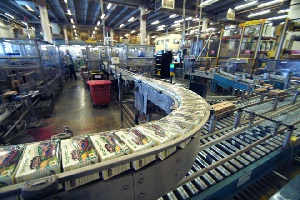Ghana’s industrialisation since independence could largely be described as a “rhetoric” because it has not received the required innovation, pragmatic actions, policy, capital and the political will to make it a reality.
Professor John Victor Mensah, a Professor of Development Economics at the School for Development Studies (SDS) of the University of Cape Coast (UCC), who made the observation, said there is the need for updated and clear industrial policies and strategies that were backed by action.
The university don, who was delivering his inaugural lecture on the topic: “Ghana’s industrialisation, rhetoric or reality?”, therefore called for a concerted effort from government, the private sector and civil society to push the agenda.
Immediately after independence, government launched a massive industrialisation drive emphasising on Import Substitution Industrial (ISI) policies.
Since then successive governments and development practitioners have recognised industrialisation as key to national development- but attempts to industrialise has been inhibited by several factors.
They include excessive trade liberalisation, unreliable power and water supply, land disputes and bureaucratic procedures of land acquisition. Prof Mensah said other inhibiting factors to include poor road networks, haphazard layout of settlements, external shocks in commodity prices, depreciation of the cedi among others.
He underscored the importance of industrialisation to national development adding that the benefits were enormous because employment creation, conservation of foreign exchange earnings and foreign exchange generation through exports thrives.
Highlighting the trend of performance of Ghana’s industrial sector since independence, he said until the production of crude oil in commercial quantities began in 2011, the relative contribution of the industrial sector to national output remained at the bottom after agriculture and services sectors.
Ghana’s industrial sector has been dominated by Small-Scale firms with fewer than thirty workers, constituting about 94 percent of the total number of industrial sector firms while medium and large-scale firms accounted for only four percent and two percent respectively.
Prof Mensah said the contribution of the mining, quarrying and oil sub-sector increased marginally and overtook the manufacturing as the second leading sub-sector in the industrial sector in 20011 but that witnessed a declining trend between 2013 and 2015.
Mr Mensah lauded the one district, one factory policy of the Government saying “currently, very few significant industrial activities takes place in the districts.
He said the 1D1F was an attempt to address the localisation of factories through decentralisation but raised some critical issues that ought to be addressed in its implementation.
Prof Mensah was of the view that land banks for industrial estates in the districts should be created to facilitate the implementation of the 1D1F policy whilst focus must be on establishing more medium and large scale enterprises that gave high returns.
He said the role of Metropolitan Municipal and District Assemblies (MMDAs) must be clearly defined in the 1D1F policy while creating the enabling environment for public private partnership.
Again, he said, steps must be taken to address ‘locational’ bureaucratic and other internal and external factors that inhibited industrialisation.
Business News of Thursday, 1 November 2018
Source: ghananewsagency.org













